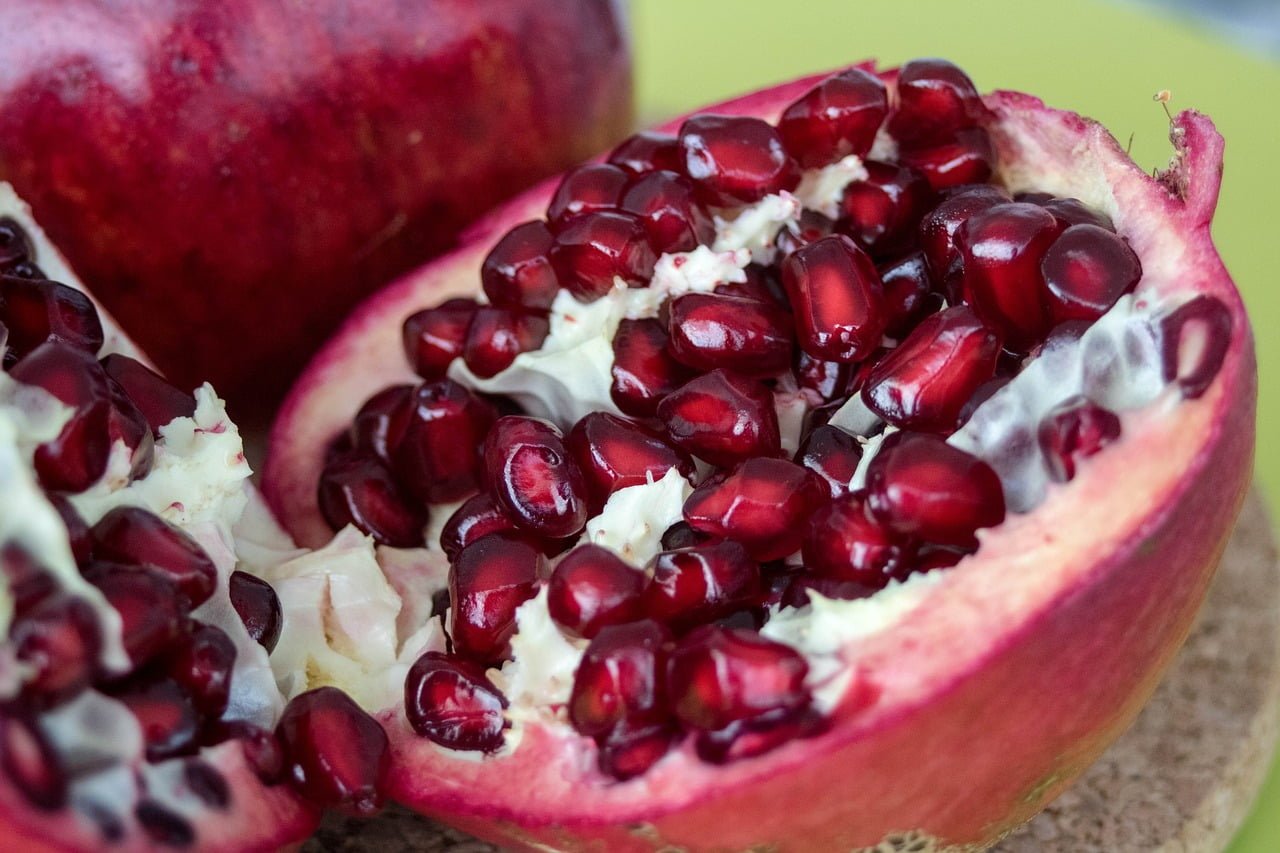During the winter, many people become depressed due to the lack of sunlight and cold weather. While you can’t change the fact that it is dark and cold outside, studies have found that eating a healthy diet will help reduce your chance of becoming depressed. Two foods you should eat plenty of are fruits and vegetables. The general recommendation for fruit and vegetable intake is at least 400 grams per day or five servings of 80 grams. Unfortunately, many people do not eat as many fruits and vegetables as they should. One reason for this could be that people think there aren’t many fruit and vegetable options during the winter. Thankfully, this is not true. There are so many winter fruits and veggies that are available this time of year. In this article, I’ll go over the best winter fruits to try this season. They are all packed with vitamins and have so many health benefits. So, let’s get started.
15 Best Winter Fruits to Eat This Winter
1. Clementine
A clementine is a tangor, a hybrid between a willowleaf mandarin orange and a sweet orange. Clementines are easy to peel and are very similar to tangerines. They are typically juicy and sweet, with less acid than regular oranges. Because clementines are very easy to peel, this fruit makes a great healthy snack when you are on the go.
2. Winter Squash
A lot of people assume winter squash is a vegetable, but the truth is they are actually a fruit. All squash are fruits. As the name suggests, winter squash is popular during the winter, making them a great winter fruit to try. Winter squash includes butternut, pumpkin, spaghetti, acorn, and more. Winter squash is high in vitamin B2, vitamin B3, vitamin B6, vitamin E, and many essential minerals. Because of its health benefits, winter squash is considered a superfood. The healthiest squash among them is the butternut squash. Butternut squash has more vitamin C and beta carotene than the acorn, Hubbard, and spaghetti squash.
3. Pomegranates
Late fall and early winter is the only time you’ll find pomegranates in the store. Although they are sometimes grown in the late summer, you’ll most likely find them once the temperatures get cooler. Although pomegranates are difficult to eat with all their seeds and hard peel, they are worth the extra effort. To peel this delicious fruit, you can either quarter the pomegranate with a knife, or you can cut off the top of the fruit like you were carving a pumpkin. Once you cut off the top of the fruit, you can then slice it and scoop out the seeds to put in a strainer for rinsing. Pomegranates are considered a superfood, as they have many health benefits. One such benefit is that it can help prevent certain heart conditions such as high cholesterol, high blood pressure, heart attack, and congestive heart failure.
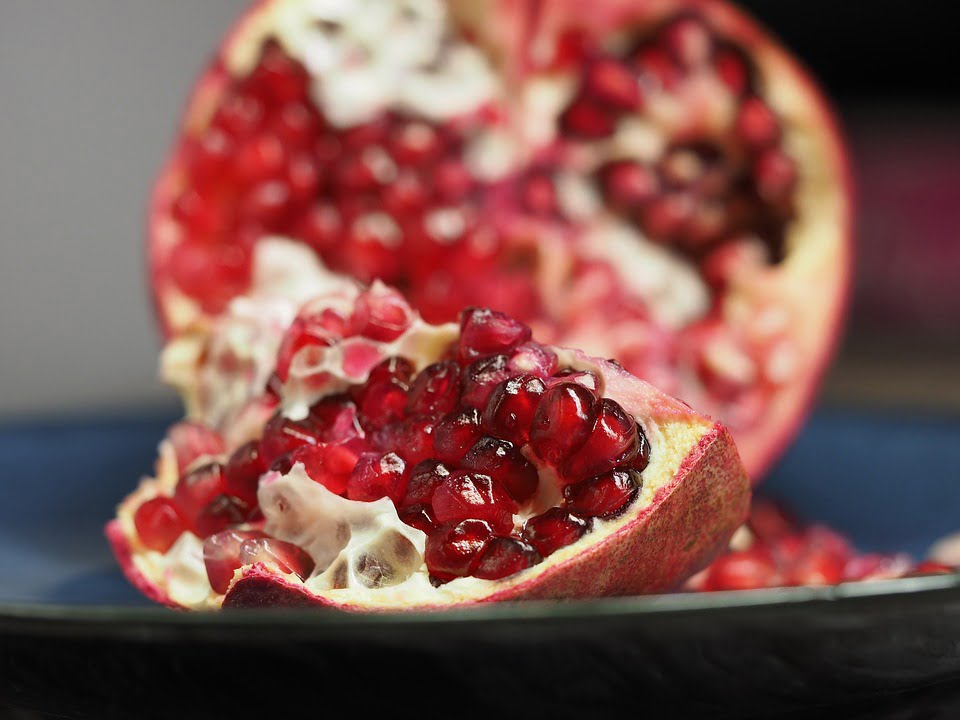
4. Date Plums
Date plums are like a small plum but they are yellow in color. They are cholesterol free and a great source of fiber, vitamins A and C, and manganese. This fruit also helps to prevent brain cancer tumors in the head and neck because of the presence of the anti-cancerous substance. This fruit will also fight asthma and lung infections.
5. Grapefruit
During the winter, grapefruit is often grown in warmer climates. This citrus fruit is rich in nutrients, antioxidants, and fiber, making it one of the healthiest citrus fruits you can eat. Because grapefruit contains few calories but lots of water, this fruit has been shown to aid weight loss. Grapefruit may help prevent the risk of kidney stones, dangerous heart conditions, diabetes, and will help keep your immune system healthy. Overall, grapefruit is a great fruit to add to your diet. If the bitter/sour taste of grapefruit bothers you, you can add certain ingredients to it to make it sweeter. You can add cane sugar or brown sugar to it, or for a healthier version, add some honey to it. You can also mix it with sweet fruits such as bananas, strawberries, and mangos.
6. Kiwi
Kiwi is a high source of vitamin C. In fact, they contain twice the amount of vitamin C as oranges and lemons do. Kiwi fruit is loaded with vitamins and minerals such as Vitamins A, B6, B12, E, and potassium, calcium, iron, and magnesium. While Kiwis are commonly used in fruit salads, you can also use them to make smoothies, Kiwi sorbet, and Kiwi bread.
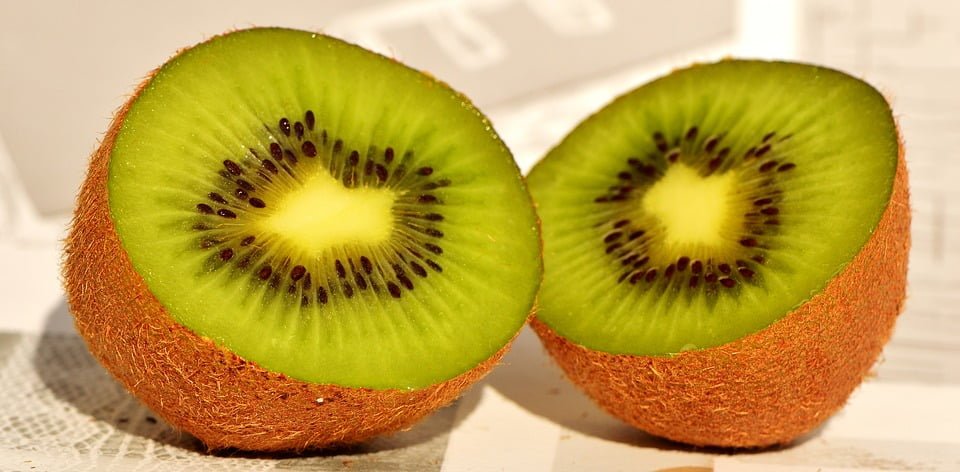
7. Apples
Take a look around the produce section of your store and you will probably notice apples. The reason why apples are so common during the winter is that they are grown in warmer climates. Just because apples are so common doesn’t mean they don’t have health benefits. Apples are extremely rich in important antioxidants, flavonoids, and dietary fiber. The phytonutrients and antioxidants in apples may help reduce the risk of developing cancer, hypertension, diabetes, and heart disease. As the saying goes, “An apple a day keeps the doctor away”. Even though apples may seem very common and plain to you, they are extremely healthy.
8. Papaya
Christopher Columbus, an Italian voyager once referred to papayas as the fruit of the angels. Papaya is available throughout the year, including during the winter. Although papaya was once considered rare, it is now a rather popular fruit you should be able to easily find at stores year round. Papaya is rich in fiber, Vitamin C, and antioxidants which prevent cholesterol build up in your arteries. It prevents arthritis, keeps your eyes healthy, improves digestion, helps with weight loss, prevents signs of aging, prevents cancer, and helps reduce stress.
9. Star Fruit
While it isn’t as popular as other winter fruits, star fruit is an interesting little fruit full of vitamins. Star fruit is low in calories, provides a good amount of fiber, and is also antioxidant rich. Star fruit can also help you fall asleep, maintain healthy blood pressure, support your digestive system, and help you lose weight. This yellow fruit is called start fruit because it is shaped like a star. When you slice it, it will have all five points as a star has.
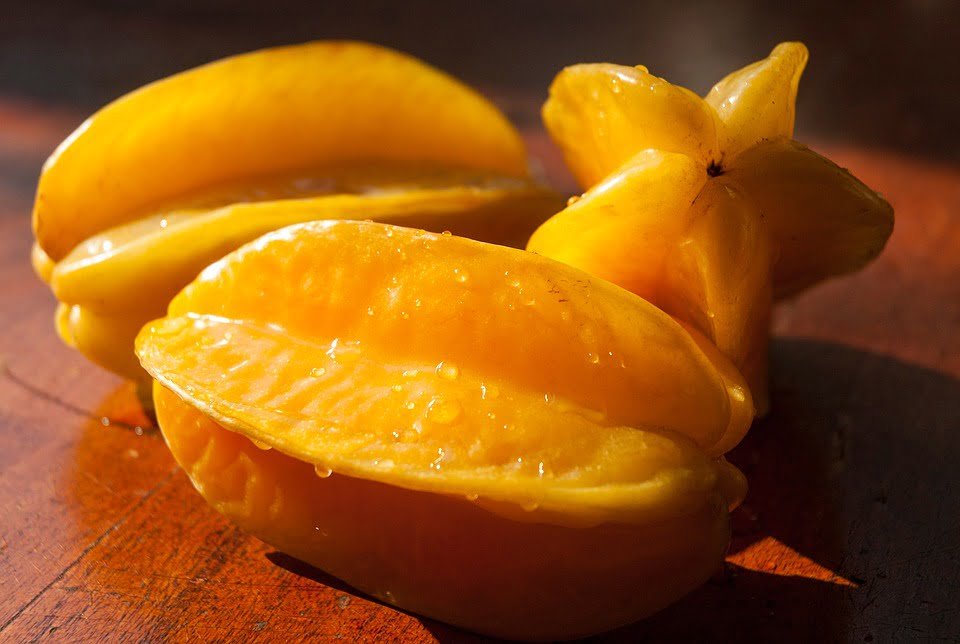
10. Quinces
Once again, quinces are not as popular as other winter fruits. The quince grows on small trees a lot like a pear or an apple would. However, it is inedible when first picked no matter how ripe. The quince often looks similar to a big plum in shape, with a light green color. When it is ripe and ready to eat, it reaches a bright yellow hue with little specks of brown. This fruit must be cooked in order for you to eat it. Because quince fruit is full of pectin, it is most often found as a jam, jelly, marmalade, or compote. It can also be roasted in the oven or baked in pies, muffins, and tarts. Quinces are full of dietary fiber, antioxidants, vitamins, and minerals.
11. Cranberries
Cranberries are another one of the winter season fruits. They have been known to improve your digestion, reduce bad cholesterol, prevent gum disease, and boost your immune system. Because cranberries are tart, you may want to mix them with something that is sweet. Instead of adding sugar, consider mixing cranberries with orange juice. You can also cook the cranberries, which helps them release some of their natural sweetness.
12. Pears
Pears are popular from August through early spring. This fruit is high in fiber, making it a great fruit to help aid weight loss. They have more fiber than apples have. Its fiber will also help lower cholesterol levels.
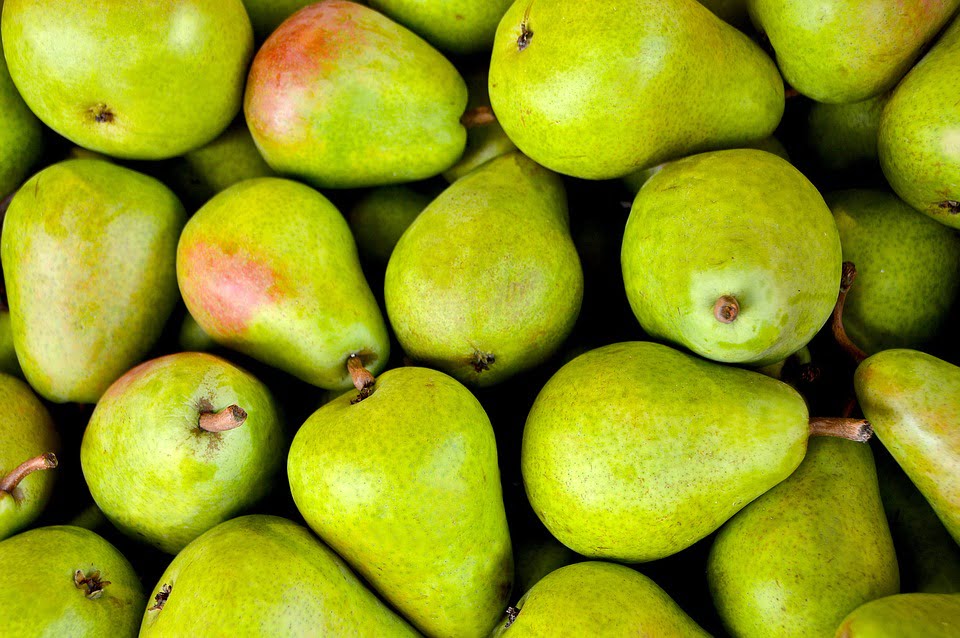
13. Oranges
Oranges are another popular winter fruit. They are usually stocked up all year round in the grocery store. Oranges contain vitamin C, fiber, potassium and choline, which are all good for your heart. Oranges are also high in vitamin A, which can help improve your night vision and prevent cataracts.
How Can Exercising in the Winter Benefit My Overall Health?
Exercising in the winter has numerous benefits for overall health. Firstly, it helps boost your immune system, making you less prone to illness during the cold season. Secondly, regular winter exercise improves mood and fights seasonal affective disorder, thanks to the release of endorphins. Additionally, it helps maintain a healthy weight by burning calories and keeping metabolism active. Lastly, engaging in outdoor winter activities like skiing or snowboarding provides opportunities for socializing and enjoying nature. These are just some of the key reasons to exercise in winter.
14. Lemons
Although lemons are one of the sourest winter fruits, they are extremely healthy for you and should be eaten often. They can improve your heart health, prevent cancer, prevent kidney stones, and help damaged livers. They are also very healthy to eat during pregnancy. Because lemons are so sour, it will be difficult for you to eat them plain. Instead, you can use them to make lemonade, or, for a healthier version, make lemon water.
15. Bananas
Bananas are loaded with essential vitamins and minerals such as potassium, calcium, manganese, magnesium, iron, folate, niacin, riboflavin, and B6. This fruit helps fight anemia, keeps your heart healthy, lowers your blood pressure, and improves your digestion. Because bananas are so popular, it shouldn’t be difficult to find them.
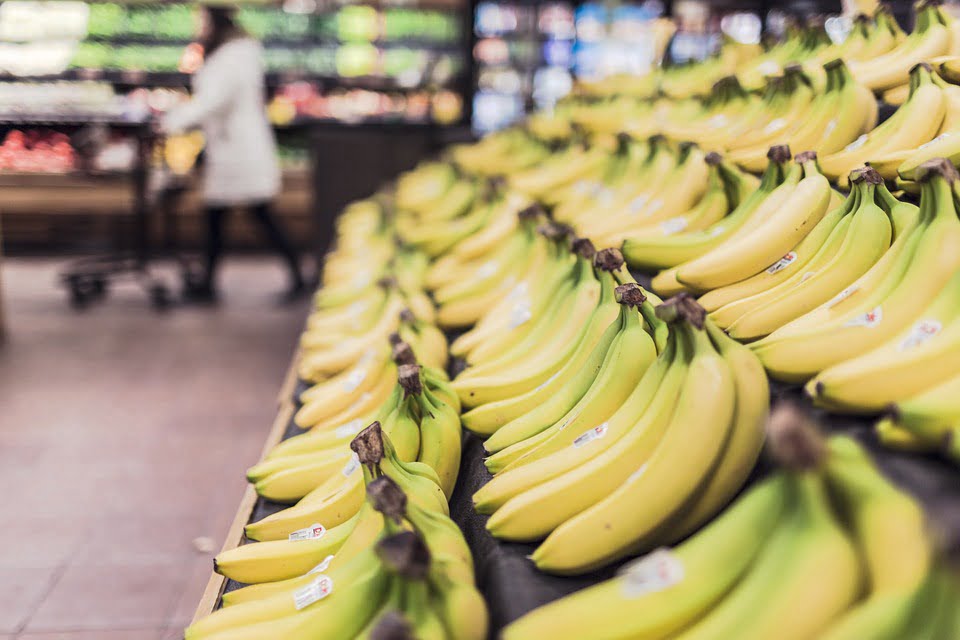
Final Thoughts
Well, there you have it. If you have been wondering what fruits are in season in winter, this article has hopefully answered your questions. As you can see, there are so many winter fruits that are in season this time of year. Some of them are popular, such as apples, oranges, and bananas. Others, such as start fruit and quines, are not heard of as often. Whichever winter fruits you decide to try, I’m sure you’ll enjoy them. Not only do they taste wonderful, but they are also loaded with vitamins and essential minerals. Enjoy eating these delicious winter fruits!





